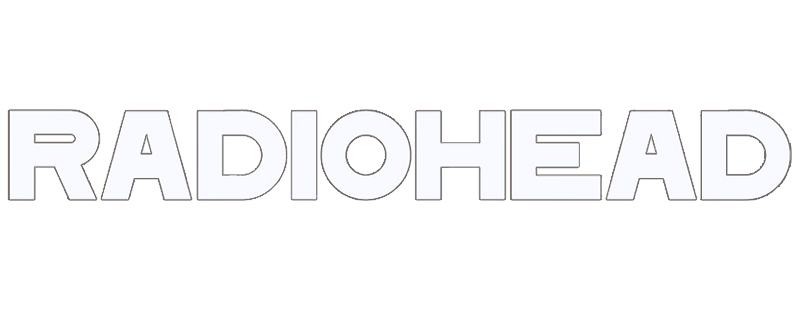Track List
01) Everything in Its Right Place
02) Kid A
03) The National Anthem
04) How to Disappear Completely
05) Treefingers
06) Optimistic
07) In Limbo
08) Idioteque
09) Morning Bell
10) Motion Picture Soundtrack
11) Genchildren
12) Packt Like Sardines in a Crushd Tin Box
13) Pyramid Song
14) Pulk/Pull Revolving Doors
15) You and Whose Army?
16) I Might Be Wrong
17) Knives Out
18) Morning Bell/Amnesiac
19) Dollars and Cents
20) Hunting Bears
21) Like Spinning Plates
22) Life in a Glasshouse
23) Like Spinning Plates (‘Why Us?' version)
24) Untitled V1
25) Fog (Again Again version)
26) If You Say the Word
27) Follow Me Around
28) Pulk/Pull (True Love Waits version)
29) Untitled V2
30) The Morning Bell (In the Dark version)
31) Pyramid Strings
32) Alt. Fast Track
33) Untitled V3
34) How to Disappear Into Strings
01) Everything in Its Right Place
02) Kid A
03) The National Anthem
04) How to Disappear Completely
05) Treefingers
06) Optimistic
07) In Limbo
08) Idioteque
09) Morning Bell
10) Motion Picture Soundtrack
11) Genchildren
12) Packt Like Sardines in a Crushd Tin Box
13) Pyramid Song
14) Pulk/Pull Revolving Doors
15) You and Whose Army?
16) I Might Be Wrong
17) Knives Out
18) Morning Bell/Amnesiac
19) Dollars and Cents
20) Hunting Bears
21) Like Spinning Plates
22) Life in a Glasshouse
23) Like Spinning Plates (‘Why Us?' version)
24) Untitled V1
25) Fog (Again Again version)
26) If You Say the Word
27) Follow Me Around
28) Pulk/Pull (True Love Waits version)
29) Untitled V2
30) The Morning Bell (In the Dark version)
31) Pyramid Strings
32) Alt. Fast Track
33) Untitled V3
34) How to Disappear Into Strings
4:11
4:44
5:51
5:56
3:42
5:15
3:31
5:09
4:35
3:20
0:52
4:00
4:48
4:07
3:11
4:53
4:14
3:14
4:51
2:01
3:57
4:36
5:04
1:48
2:25
4:20
5:19
2:46
0:46
2:00
1:18
1:32
1:16
5:32
Data Complete 80%
Total Rating
Total Rating
![]() (1 users)
(1 users)
Back Cover![]()
CD Art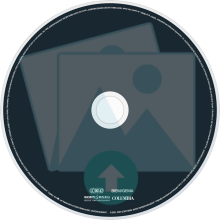
3D Case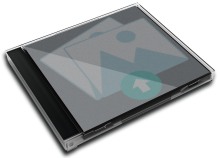
3D Thumb
3D Flat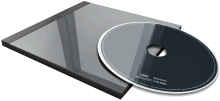
3D Face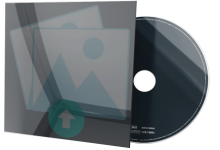
3D Spine
First Released
![]() 2021
2021
![]() Alternative Rock
Alternative Rock
![]() Sad
Sad
![]() ---
---
![]() ---
---
![]() Medium
Medium
![]() Compilation
Compilation
![]() 0 copies
0 copies
Album Description
Available in:
Three years after conquering the alternative rock world with the landmark OK Computer, Radiohead followed with one of the most anticipated albums of the era. And everything changed. 2000's course-shifting Kid A was a jarring transformation: icy atmospherics, digitized beats, meandering soundscapes, and enough gloom and anxiety to make their previous output almost cheerful in comparison. With their crunchy guitars and snarling attitude seemingly left behind in 1997, the response was swift and divisive: critics either hailed it for its artistry or mourned the loss of their beloved art-rock misfits. Nonetheless, the album hit number one around the world and became widely recognized as one of the most influential and iconic albums of the decade. Eight months later, Radiohead delivered another dose of existential dread and experimental wizardry with 2001's weirdo sibling, Amnesiac. Even though listeners had been primed for what was to come, the public still wasn't ready. Recorded during the same sessions (and fully intended as its own entity, not just a B-sides cast-off), the set delved even deeper into the extremes of this new sonic aesthetic, pushing the limits of the average fan's patience with complex time signatures and song structures, stretching themselves even further away from The Bends. In some respects, the complex Amnesiac was less harsh and robotic than Kid A, injecting warmth into the machine with layered production, hypnotic programming, and very human touches like piano, strings, and even a brass band.

User Album Review
Three years after conquering the alternative rock world with the landmark OK Computer, Radiohead followed with one of the most anticipated albums of the era. And everything changed. 2000's course-shifting Kid A was a jarring transformation: icy atmospherics, digitized beats, meandering soundscapes, and enough gloom and anxiety to make their previous output almost cheerful in comparison. With their crunchy guitars and snarling attitude seemingly left behind in 1997, the response was swift and divisive: critics either hailed it for its artistry or mourned the loss of their beloved art-rock misfits. Nonetheless, the album hit number one around the world and became widely recognized as one of the most influential and iconic albums of the decade. Eight months later, Radiohead delivered another dose of existential dread and experimental wizardry with 2001's weirdo sibling, Amnesiac. Even though listeners had been primed for what was to come, the public still wasn't ready. Recorded during the same sessions (and fully intended as its own entity, not just a B-sides cast-off), the set delved even deeper into the extremes of this new sonic aesthetic, pushing the limits of the average fan's patience with complex time signatures and song structures, stretching themselves even further away from The Bends. In some respects, the complex Amnesiac was less harsh and robotic than Kid A, injecting warmth into the machine with layered production, hypnotic programming, and very human touches like piano, strings, and even a brass band.
External Album Reviews
None...
User Comments


Available in:
Three years after conquering the alternative rock world with the landmark OK Computer, Radiohead followed with one of the most anticipated albums of the era. And everything changed. 2000's course-shifting Kid A was a jarring transformation: icy atmospherics, digitized beats, meandering soundscapes, and enough gloom and anxiety to make their previous output almost cheerful in comparison. With their crunchy guitars and snarling attitude seemingly left behind in 1997, the response was swift and divisive: critics either hailed it for its artistry or mourned the loss of their beloved art-rock misfits. Nonetheless, the album hit number one around the world and became widely recognized as one of the most influential and iconic albums of the decade. Eight months later, Radiohead delivered another dose of existential dread and experimental wizardry with 2001's weirdo sibling, Amnesiac. Even though listeners had been primed for what was to come, the public still wasn't ready. Recorded during the same sessions (and fully intended as its own entity, not just a B-sides cast-off), the set delved even deeper into the extremes of this new sonic aesthetic, pushing the limits of the average fan's patience with complex time signatures and song structures, stretching themselves even further away from The Bends. In some respects, the complex Amnesiac was less harsh and robotic than Kid A, injecting warmth into the machine with layered production, hypnotic programming, and very human touches like piano, strings, and even a brass band.
User Album Review
Three years after conquering the alternative rock world with the landmark OK Computer, Radiohead followed with one of the most anticipated albums of the era. And everything changed. 2000's course-shifting Kid A was a jarring transformation: icy atmospherics, digitized beats, meandering soundscapes, and enough gloom and anxiety to make their previous output almost cheerful in comparison. With their crunchy guitars and snarling attitude seemingly left behind in 1997, the response was swift and divisive: critics either hailed it for its artistry or mourned the loss of their beloved art-rock misfits. Nonetheless, the album hit number one around the world and became widely recognized as one of the most influential and iconic albums of the decade. Eight months later, Radiohead delivered another dose of existential dread and experimental wizardry with 2001's weirdo sibling, Amnesiac. Even though listeners had been primed for what was to come, the public still wasn't ready. Recorded during the same sessions (and fully intended as its own entity, not just a B-sides cast-off), the set delved even deeper into the extremes of this new sonic aesthetic, pushing the limits of the average fan's patience with complex time signatures and song structures, stretching themselves even further away from The Bends. In some respects, the complex Amnesiac was less harsh and robotic than Kid A, injecting warmth into the machine with layered production, hypnotic programming, and very human touches like piano, strings, and even a brass band.
External Album Reviews
None...
User Comments

No comments yet...

